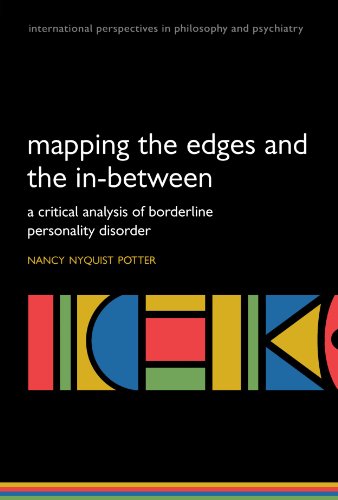Synopsis:
Borderline Personality Disorder (BPD) is a diagnosis given to ten percent of all those seen in outpatient mental health facilities and twenty percent of those seen in inpatient psychiatric units. This is a significant number of people in the Western world. However, many of the core concepts and symptoms that underlie this diagnosis are questionable. Many of the attitudes and actions of carers are based on assumptions about those with BPD that cry out for analysis, with both cultural and gender norms interacting with clinical diagnosis and treatment, to the detriment of both carers and patients.
This book considers how we diagnose BPD, looking at the key constructs: idendity disturbance, inappropriate or excessive anger, unstable relationships, impulsivity, self-injurious behaviour, and manipulativity. It starts by looking at the cultural and gender assumptions and norms behind BPD, drawing upon philosophical, clinical, anthropological, and sociological literature. Combining philosophical analysis with clinical experience and patients' writings, it clarifies the constructs so that the reader can understand the messiness and complexity that frames this diagnosis and treatment. After examining the current state of these constructs and their effects on carer/patient interactions. Part II sees an application of virtue theory to therapeutic treatment with BPD patients. It looks at three virtues that are particularly important for clinicians and other carers to cultivate when working with BPD patients: trustworthiness; the virtue of giving uptake, and empathy. It argues that, in their absence, not only are clinicians' attitudes harmful to patients, but also that the status of the diagnosis is actually compromised.
Mapping the Edges and the In-Between presents a compelling argument that Borderline Personality Disorder needs to be approached in a new light--one that will benefit patients.
About the Author:
Nancy Potter is a professor of philosophy at the University of Louisville and a core faculty member of the university's Interdisciplinary M.A. in Bioethics and Medical Humanities. Her research ranges from virtue ethics to philosophies of peace and to mental health and illness. She has had considerable volunteer clinical experience with people in crisis, sex offenders, and people who come to hospital in need of psychiatric care. She also works in the local community to advance medical ethics. Nancy Potter is the author of the monograph 'How Can I Be Trusted?' and two edited anthologies. She is the president of the Association for the Advancement of Philosophy and Psychiatry.
"About this title" may belong to another edition of this title.
![]()
